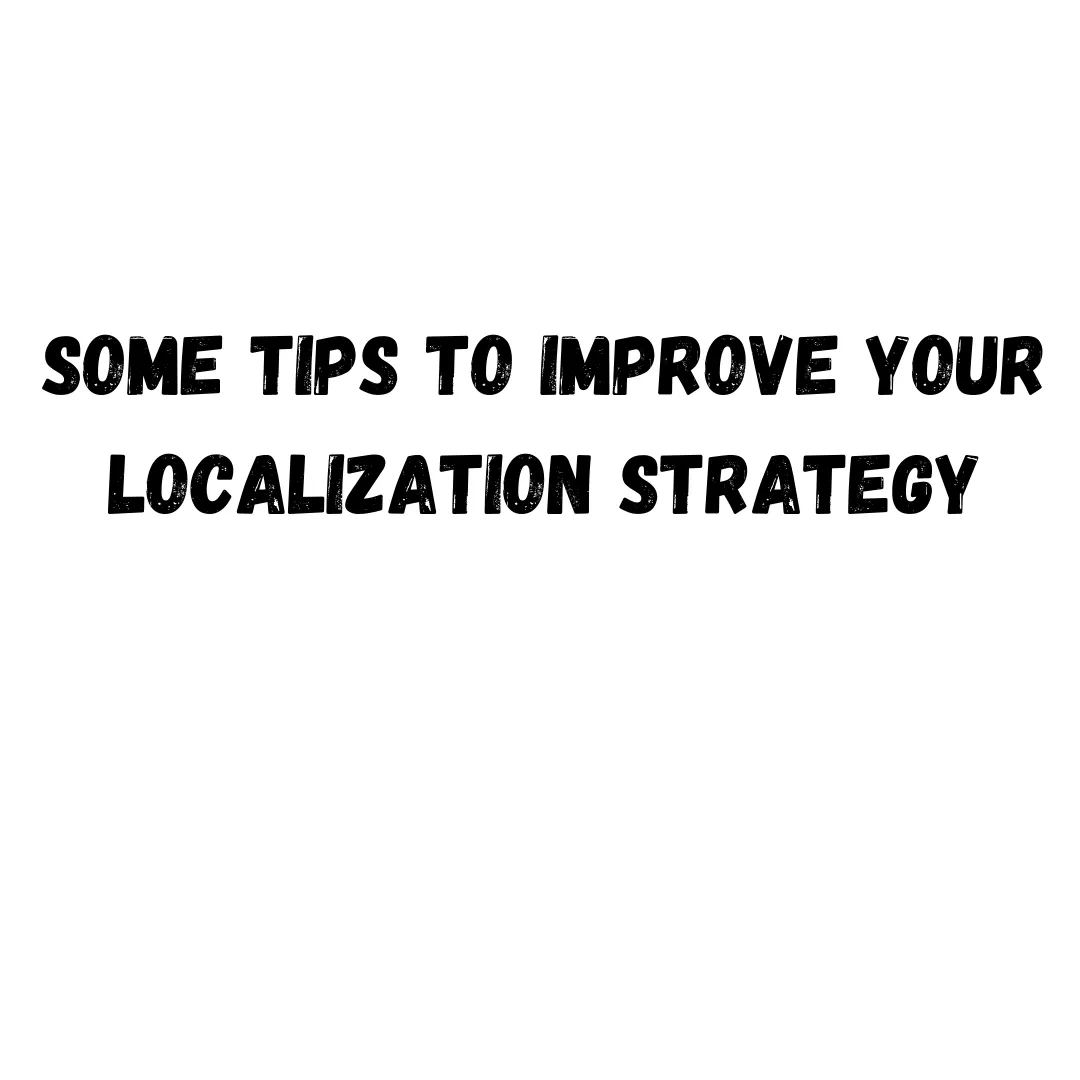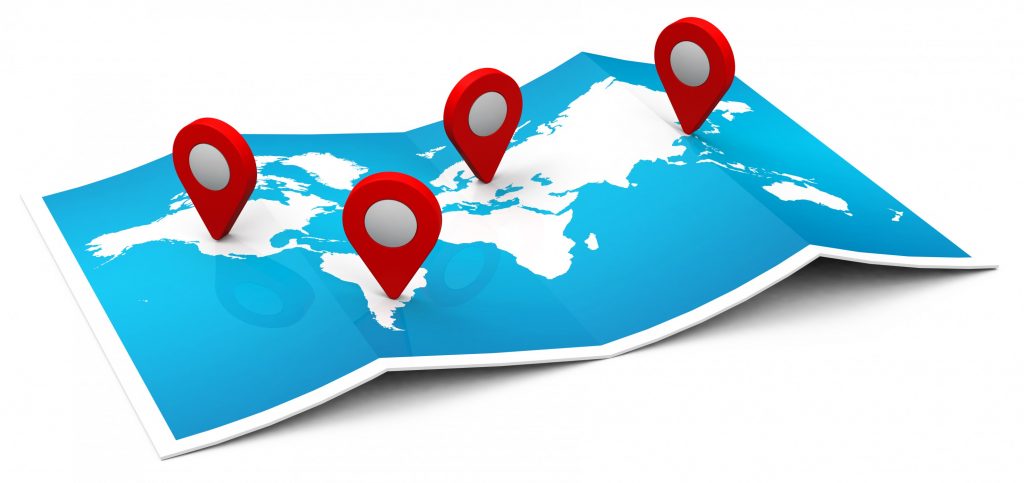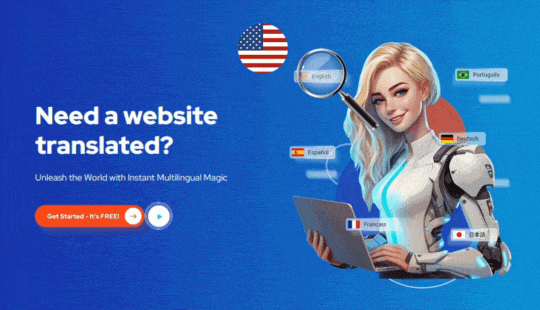
In some of the articles we previously posted, we’ve talked about the impact of learning the different marketing strategies to be applied to your business, the many ways to translate your website making it a total success for your target country, and also given some tips to manage your business when it goes live.

Today, this article will probably include some of those topics mixed with one that is very familiar to bloggers and any translator. It is important to remember that once you translate a website, you are not only selling your message in the target language, you are also connecting with a new audience that may define your success in this new country. There are cultural facts that we may respect and adjust on our website to make the audience feel at home when they visit the website.
Think about this for a second, when was the first time you heard the word “Localization”, the context, the meaning and what it has become through the years, has it been properly applied to your business marketing strategies or is it unknown to you? When we talk about customers acquisition it is recommended to get to know and understand your target market. Once you have enough details to design marketing campaigns to catch their attention, you update your website to make it SEO friendly, that’s when localization takes its place.

Localization strategy
Localizing your marketing strategy without breaking its balance with the standards you work with sounds like a little too difficult to achieve. Personalizing your strategy will increase the possibilities to acquire customers, keep them and build loyalty as well as finding potential ones.
It is well known you got to know your customers, their interest, their motivation to buy your products and the reasons why they would revisit your website. They also say the key is learning to speak in ways they feel identified with, most of the customers would naturally prefer visiting a website in their own language.
Localization can be defined in dictionaries as “the process of making something local in character or restricting it to a particular place”.
If we change a bit the perspective and try to apply that definition to your business, it sounds like the adaptability and flexibility of your product, service or content to your target market or country. The changes include your website, blog, social media, marketing campaigns and anything to meet your customers’ needs.
Localization is related to how you use the translated content but it goes beyond the language, it has to do lot more with their specific culture, social preferences and idiosyncrasy. If you think about it, your localization demands you to understand the country and the society you will offer your products to, here is when just a translation is not enough.
Now that we know translation and localization give your business a completely different perspective in terms of marketing strategies and content creation letting your customers know you, I would like to share with you some aspects we can consider are the benefit of a good localization strategy.
The proper localization strategy will allow you to provide a good customer experience by communicating the right message at a global scale without losing your brand’s identity.
Believe it or not, working on a good localization strategy demonstrates your commitment to this new market, creating a long-term trust factor and it will also increase your revenue.
Two aspects I consider important regarding your localization optimization :
1. Defining Localization
2. Planning your Localization Strategy
We have already described what Localization means and the impact it has in your business and your customers, it is time to help you understand how this would work in practice by helping you with a localization strategy plan.
Where could you start?
Your business as many other businesses that have already gone through this process should consider several aspects when planning an appropriate localization strategy, here are a bit more of these important factors that would help you succeed.
Your local audience
As mentioned earlier, the best way to plan a localization strategy is to get to know and understand the target market. The message you send to this new audience could be offensive and damage your reputation if it sounds wrong, images and cultural nuance are also part of it. So the best thing to do is extensive research on your target market.
To determine who your target market is, remember you can check your Google Analytics to see the traffic in your website, where they come from and that’s when you start your research on how strong the business could be with this new target.
Believe it or not, working with a local partner far from being a competitor, would actually grant you accurate, localized experience and feedback.
While researching you may find important information regarding the demand of your product, competition, shopping patterns, cultural similarities or differences, behavior, language, color interpretation and more. Once you know these and all the details you need, you can build a solid strategy.
Translation & Localization
If you are reading this, it is because you have been looking for some information regarding website translation, localization or maybe because you wanted to know more about ConveyThis services through the blog posts. But if there is any area in which ConveyThis can help you, it’s translation and localization, after all, once you define your target market, if you can’t communicate with them in their native language, the business opportunity won’t be a successful one.
At ConveyThis, the website plugin offers a miracle solution to your website translation, started by a machine, proofread by professionals and ofcourse, they also optimize your localization, making sure your content sounds as natural as possible to native speakers in your target country.
Localization should also be applied to your images, just remember how out of place would snow be in another country where they have summer in Christmas or how identified Korean women would feel if you use a Korean model on your pictures if you’re trying to enter their market.
Once your translation is done, SEO is absolutely important to be found on search engines, and guess what, ConveyThis will make it possible once again, you will be found by potential customers.
Competition
Well, think of big brands in the same market that you would love to enter, before you think there’s no room for you, study the strength of your business and what makes your stand out from the competition. What and how different is your product from theirs, benefits, advantages, think what would attract your customers from your product, what would build their motivation. It could be as simple as improving your customer support and reliability which will be translated into customers trust and loyalty.
Remember that your customers experience is the factor that determines if they buy your product or simply leave the website without it. This may make a difference between your business and a local one.
Adapting your brand’s values is also a good way to stand out, once you find your authenticity and style to engage your customers, they won’t have doubts.
Your content according the market
This should be simple to understand, once you have knocked at a foreign country’s door, it is obvious that their needs and interest are different from your country, this is why you will need a different approach depending on the target market. Learning about their culture will give you clues of details you could probably include in your localization strategy and maybe other topics you should avoid.
To make sure your campaign is a successful one, make sure you use social media, this must be one of the most important points of contact and the most genuine interaction you will have with your customers, do your best to encourage them to take action by sharing your posts.
Considering social media, to publish content, promote your brand, and talk to your customers requires some knowledge too, learning when and where to publish your updates, sales, offers, posts or anything you plan, is important, so make a research based on the most popular social media networks in your target country.
Now that we know localization represents a good challenge for any business, once you have created the proper strategy, you may want to test it first.

Be open to suggestions and get the advice, don’t expect changes in a short period of time, this engaging process takes time and discipline, so try to focus on improving your understanding about this target market, maybe a local partner would help a lot more, localize some of your website contents with a professional translator’s help, find the aspects that make you stand out and project them in your customer service experience and focus on authenticity, give them real local content through the proper social media channels as well as offline.


Renita Dutta
February 17, 2022I have read your article it’s an informative one. Nowadays Social Media Platforms are so engaged by audience it’s the only way to reach out more people. Social media has become the main means for brands to connect with their customers. However, when deciding to go global, most brands’ social media strategies fail without localization.